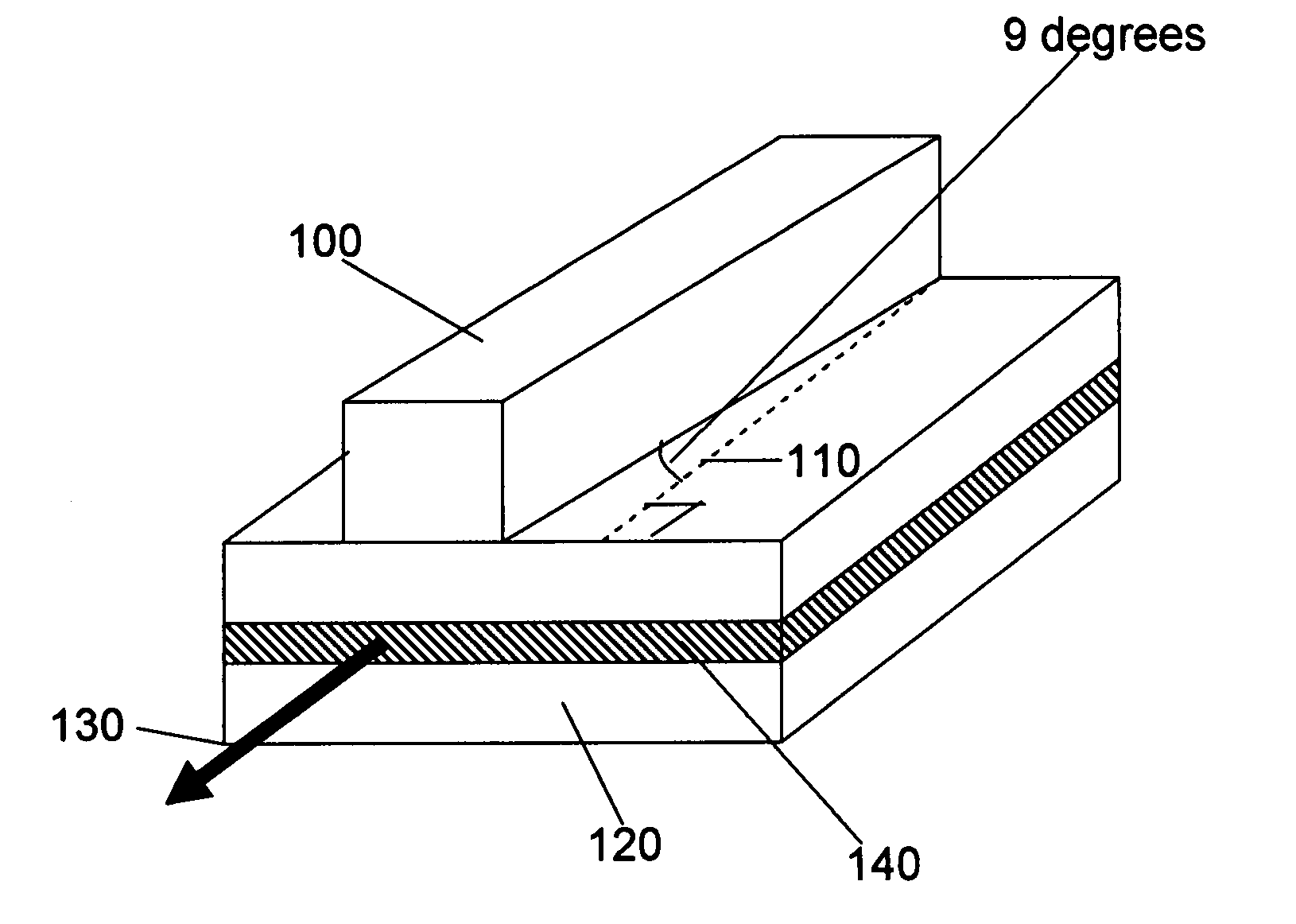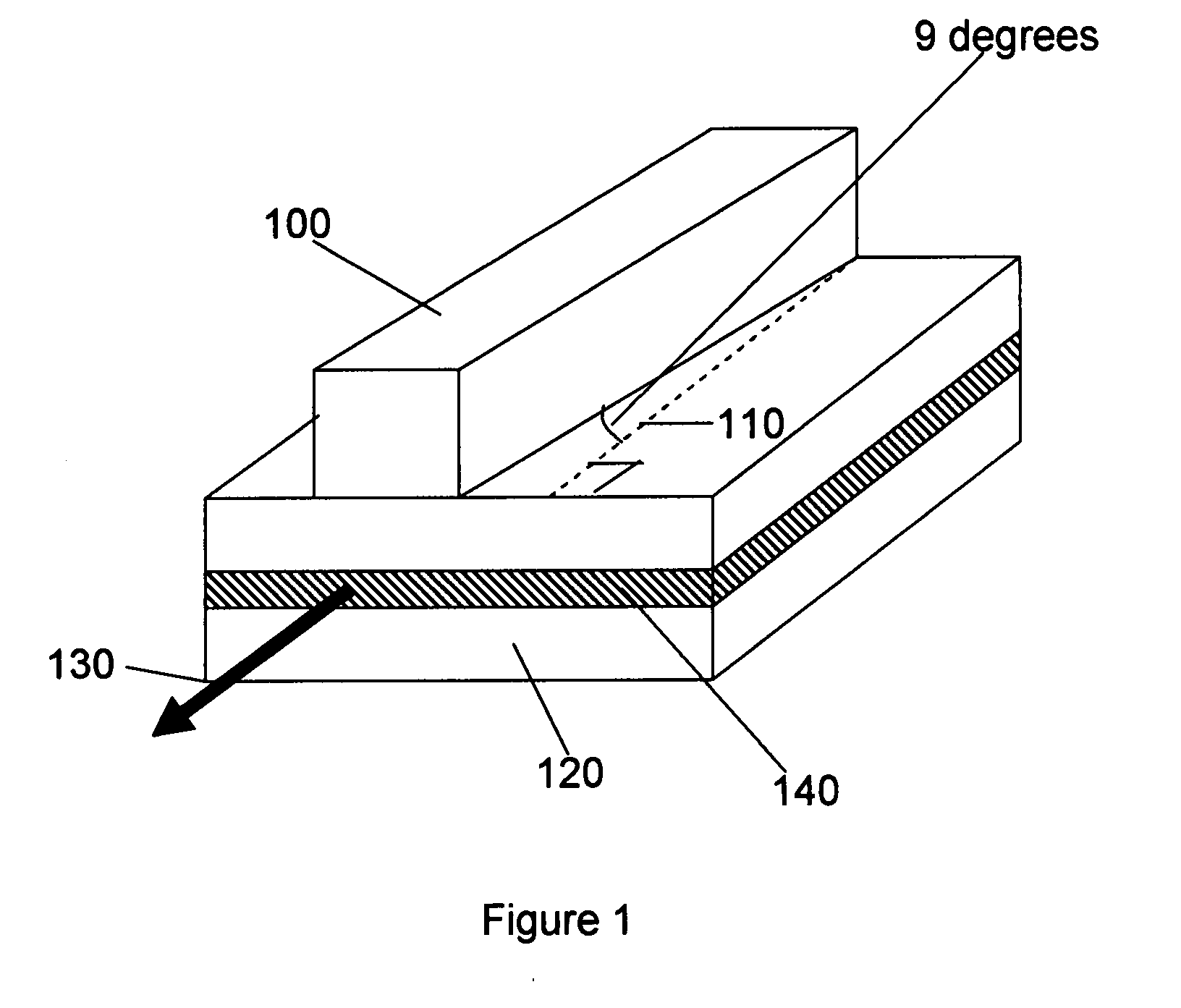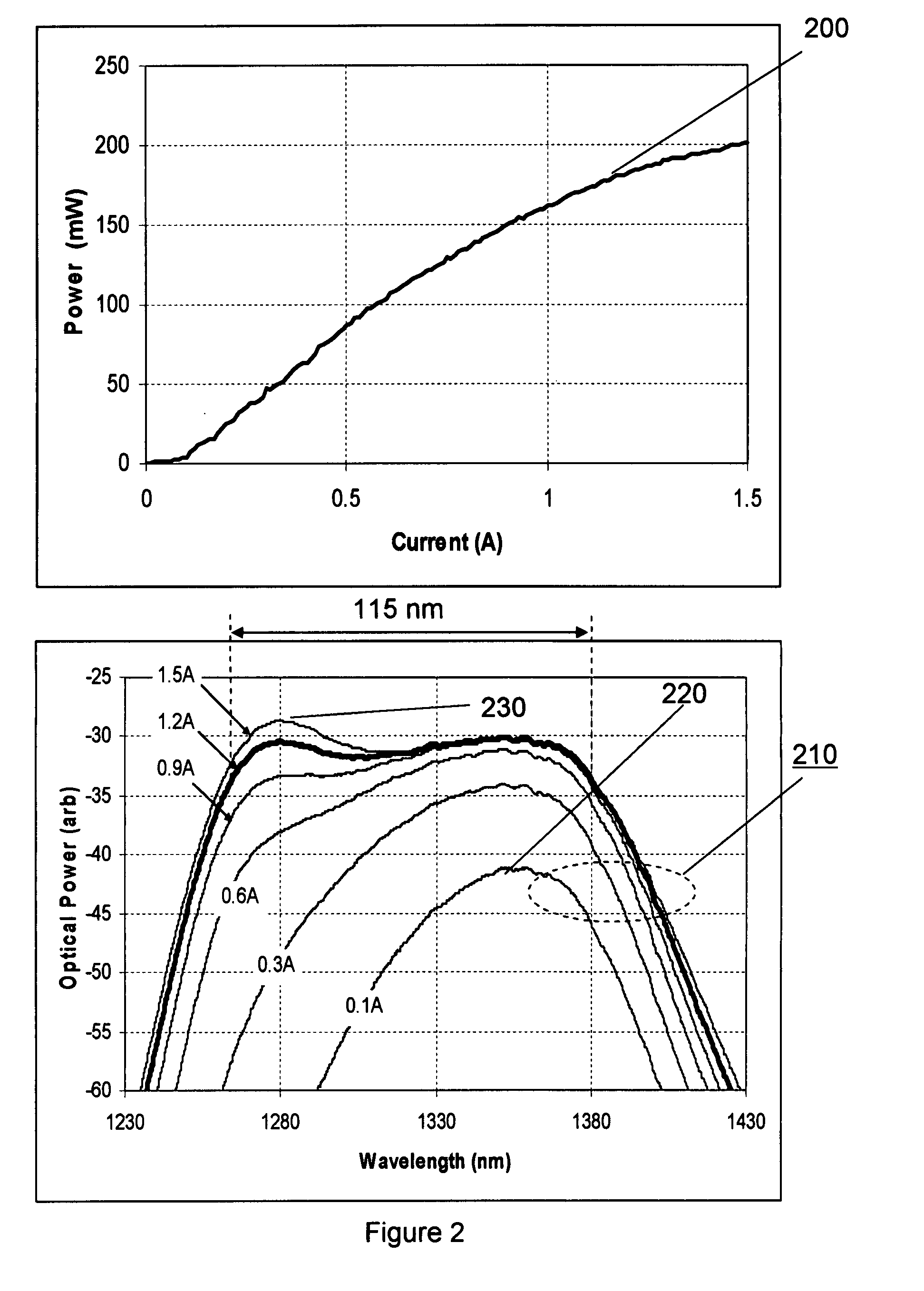High power broadband superluminescent diode
a superluminescent diode and high-power technology, applied in the direction of instruments, semiconductor devices, measurement devices, etc., can solve the problems of limited achievable state separation and spectral bandwidth, devices which cannot achieve high output power and broad optical bandwidth simultaneously, and achieve good thermal and output power performance, and uniform charge injection
- Summary
- Abstract
- Description
- Claims
- Application Information
AI Technical Summary
Benefits of technology
Problems solved by technology
Method used
Image
Examples
Embodiment Construction
[0038]The present invention provides a superluminescent diode (SLD) on an InP substrate with an AlGaInAs quantum well gain region. FIG. 1 illustrates a preferred embodiment of the present invention, in which a ridge waveguide 100 oriented at about 9 degrees away from a normal 110 to a cleaved facet 120 provides electrical and optical confinement and guides amplified radiation to an output 130. The 9 degree ridge angle effectively suppresses facet reflections and undesired laser action or spectral narrowing. Alternate ridge angles could also be employed without departing from the spirit and scope of the invention as well as other methods for optical guiding and current confinement, such as the use of a buried heterostructure or implantation. Optical gain is provided along the guided region by an AlGaInAs-based quantum well gain region 140 in which both wells and barriers can be defined in composition by parameters x, y in AlyGaxIn1-x-yAs. In the preferred embodiment, light output fro...
PUM
 Login to View More
Login to View More Abstract
Description
Claims
Application Information
 Login to View More
Login to View More - R&D
- Intellectual Property
- Life Sciences
- Materials
- Tech Scout
- Unparalleled Data Quality
- Higher Quality Content
- 60% Fewer Hallucinations
Browse by: Latest US Patents, China's latest patents, Technical Efficacy Thesaurus, Application Domain, Technology Topic, Popular Technical Reports.
© 2025 PatSnap. All rights reserved.Legal|Privacy policy|Modern Slavery Act Transparency Statement|Sitemap|About US| Contact US: help@patsnap.com



